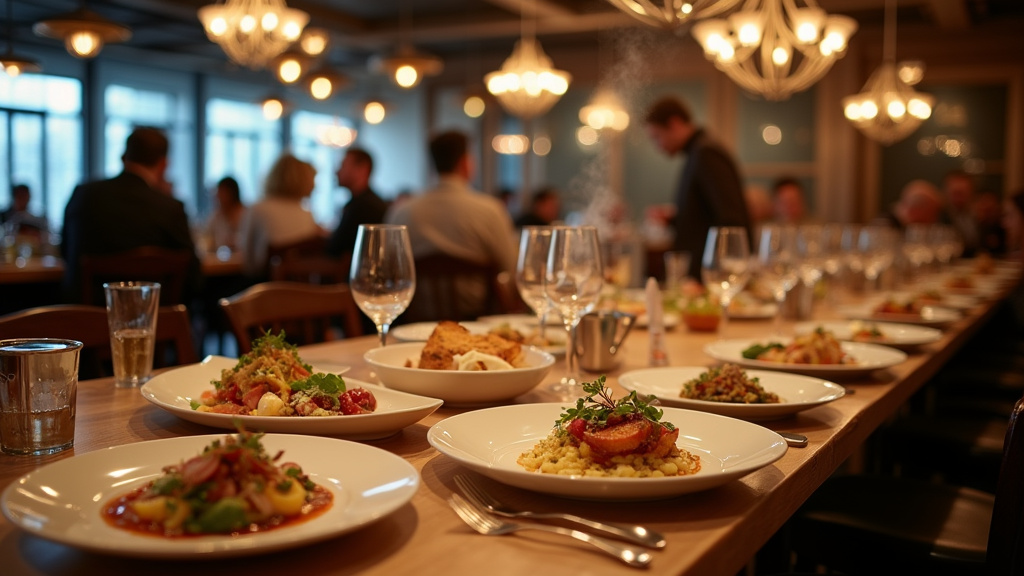Chicago, IL – October 14, 2025 – The third edition of the Chicago Venture Summit Future of Food convened over 600 leaders from the startup, investment, and corporate worlds today, solidifying the city’s status as a global powerhouse in food innovation and sustainability. Held at the bustling 167 N Green Street in the Fulton Market District, the sold-out event, officially launched by Mayor Brandon Johnson, underscored Chicago’s robust food and agtech landscape, a sector generating $11.8 billion annually and employing over 72,000 people.
Mayor Johnson, a strong advocate for food equity and innovation, heralded Chicago as the nation’s number one food manufacturing hub and a leading center for global food innovation, talent, and investment. “Chicago’s greatest strength has always been its people who are resilient, innovative, and determined to build a stronger future together,” stated Mayor Johnson. “The sold-out Chicago Venture Summit is proof that Chicago’s spirit of collaboration and innovation continues to thrive, and we will keep investing in the ideas and industries that sustain opportunity for every community.”
A Hub for Innovation and Investment
The summit, orchestrated by World Business Chicago, highlighted the dynamic growth of Chicago’s food innovation ecosystem. Phil Clement, President & CEO of World Business Chicago, emphasized the city’s unique position: “The Chicago Venture Summit has become a nationally recognized platform—the place to be for entrepreneurs, investors, and industry leaders who understand that Chicago is the global capital for food.”. The event showcased breakthrough startups in AgTech, CPG, food science, and restaurant technology, attracting leading venture capital firms and corporate strategics eager to invest in the future of food. This gathering is part of a broader strategy to foster growth, with previous summits focusing on other key sectors like climate tech and logistics.
Pioneering the Future of Food Waste
A significant debut at this year’s summit was the inaugural Future of Food Waste Forum, presented by Nicor Gas. This forum aimed to tackle the critical national challenge of food waste, estimated at 30-40% of the U.S. food supply chain. Wendell Dallas, President and CEO of Nicor Gas, elaborated on the forum’s objectives: “We’re excited to bring the food waste value chain together—processing, trucking, energy, technology and more—to reimagine how we can reduce waste, produce valuable byproducts like fertilizers and renewable energy, while creating jobs.”. The initiative seeks to foster a circular economy in Illinois by transforming food waste into renewable energy and valuable byproducts, thereby creating new economic opportunities and jobs.
Chicago’s Thriving AgTech and Food Ecosystem
Chicago’s food and beverage manufacturing industry has long been a cornerstone of its economy, generating substantial annual output and employment.. The city’s agtech and foodtech sectors are experiencing significant venture capital investment, attracting capital at a faster rate than many other major cities. Companies are increasingly focused on precision agriculture, data-driven management, and sustainable services, aligning with broader trends in agribusiness investment. The Fulton Market District, known for its dynamic food and technology ecosystem, provides an ideal backdrop for such innovation, reflecting the city’s evolution beyond its historical roots in meatpacking to embrace advanced food technologies and plant-based alternatives.
Broader Urban Vibrancy and Future Outlook
Beyond the direct focus on food, Chicago’s status as a hub for innovation contributes to its overall appeal and dynamic urban fabric, influencing various city scenes. The city’s commitment to developing its food industry aligns with broader initiatives aimed at improving food equity, such as Mayor Johnson’s exploration of municipally owned grocery stores in underserved areas. These efforts, coupled with a focus on sustainable practices and waste reduction, position Chicago not just as a leader in food manufacturing and technology, but as a model for integrated urban development. As the venture summit demonstrates, the trending advancements in Chicago’s food sector are setting a pace for innovation that extends across its vibrant economic landscape.
The Chicago Venture Summit Future of Food continues to serve as a critical platform for convening stakeholders, driving investment, and shaping the future of the global food industry from the heart of the Midwest. The event’s success reinforces Chicago’s reputation as a city where innovation, sustainability, and economic opportunity converge, promising continued growth and leadership in the years to come.















